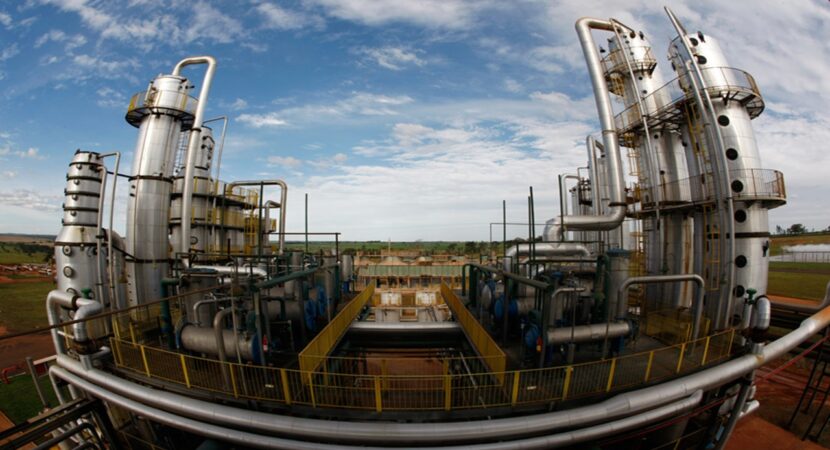
Despite the intensive use of biofuels in aviation transport, given the flex fleet and the addition of ethanol to gasoline, emissions in Brazil are expected to grow by 2045
Biofuel is and will be the main factor for the reducing carbon emissions in the aviation sector in several countries and Brazil — the largest producer of ethanol and the second largest producer of biofuel in the world, has real conditions to zero its emissions in the sector. The conclusion is from a study that will be detailed during the multilateral conference Biofuture Summit II -BBEST2021, which has the participation of 30 countries.
Read also
- Honda, one of the world's leading automobile and motorcycle manufacturers, stops developing and manufacturing gasoline and diesel combustion engines
- President of Petrobras and mayor of Macaé meet to discuss job creation and investments in ports, construction of thermoelectric plants and expansion of the airport in the city
- Contrary to Volkswagen, Renault, Honda and Volvo, the multinational Toyota refuses to end production of gasoline and diesel combustion engines
- Gasoline, ethanol and diesel prices keep rising, deputies refuse to change ICMS amid skyrocketing fuel prices and Petrobras 'pays the duck'
Biofuels are and will be the major contributor to reducing carbon emissions in the transport sector by 2030, in at least four countries – Brazil, the United States, Sweden and Finland. In Finland and Sweden, the impact ceases to be the main one only in 2040, when it is expected that electric cars will be the majority in the local fleet.
In Germany, biofuel will have a greater impact after 2030. In Brazil, however, it is definitely already the main factor and should remain in the lead until, at least, 2050. The conclusions are from the study “The role of biofuels for the decarbonization of road transport”, headed by Dina Bacovsky, researcher at the research center BEST (Bioenergy and Sustainable Technologies), in Austria, with the participation of another 20 researchers from the Technological Collaboration Programs in Bioen Energy and Advanced Motor Fuels from the International Energy Agency (IEA Bioenergy and IEA Advanced Motor Fuels).
The study will be the subject of a presentation during the Biofuture Summit II and Brazilian Bionergy Science and Technology Conference 2021 (BBEST2021), which begins, virtually, on May 24, with the participation of more than 30 countries and about 150 papers by international researchers, and hosted in Brazil.
Brazil, the United States, Sweden, Finland and Germany need to take simultaneous action to achieve carbon emission reduction targets in the aviation sector by 2050
According to researcher Dina Bacovsky, for the five economies studied (Brazil, United States, Sweden, Finland and Germany) to reach the targets for reducing carbon emissions in the road transport sector by 2050, it will be necessary for countries to adopt several measures simultaneously.
Reducing demand in the aviation sector, increasing vehicle efficiency, adding biofuels to fossil fuels, adopting electricity generated from renewable sources and the use of hydrogen, obtained from renewable sources such as ethanol, for example, are identified as the most promising to meet the ambitious goals to which the governments of these countries have committed themselves.
The study had the participation of 20 specialists from seven countries and focused on the impact of fuels such as ethanol, methanol, various higher alcohols (such as butanol), ethers, biodiesel and methane, as well as the impact of the reduction of hydrocarbons in current fuels.
From the extensive survey in the five countries, it is possible to state that all have enough resources in plantations for the production of biofuel on a large scale to replace, by up to 30%, the demand for fossil fuel for the transport sector until, at least, 2060.
Brazil, the largest ethanol producer, stands out in the scenario and shows real conditions to zero carbon emissions
According to Dina Bacovsky, Brazil stands out in the scenario. Here, compared to biofuels, electric cars do not appear as a significant contribution until 2050, in terms of their impact on the energy matrix of the aviation sector.
She warns, however, that, despite the intensive use of biofuels in aviation transport, given the flex-fuel fleet and the addition of ethanol to gasoline, emissions in Brazil are expected to grow by 2045.
The researcher explains that, potentially, the intensive use of biofuel would make a significant contribution to reducing emissions. “That would be relatively easy, since the local fleet is already flex-fuel. We started from the assumption that everyone would start using them, as well as biodiesel replacing diesel”, she says. For Dina, Brazil does have the potential to zero its emissions, but that would imply the need to invest in a large local production of biodiesel.
The study is available on the websites www.iea-amf.org e www.ieabioenergy.com












